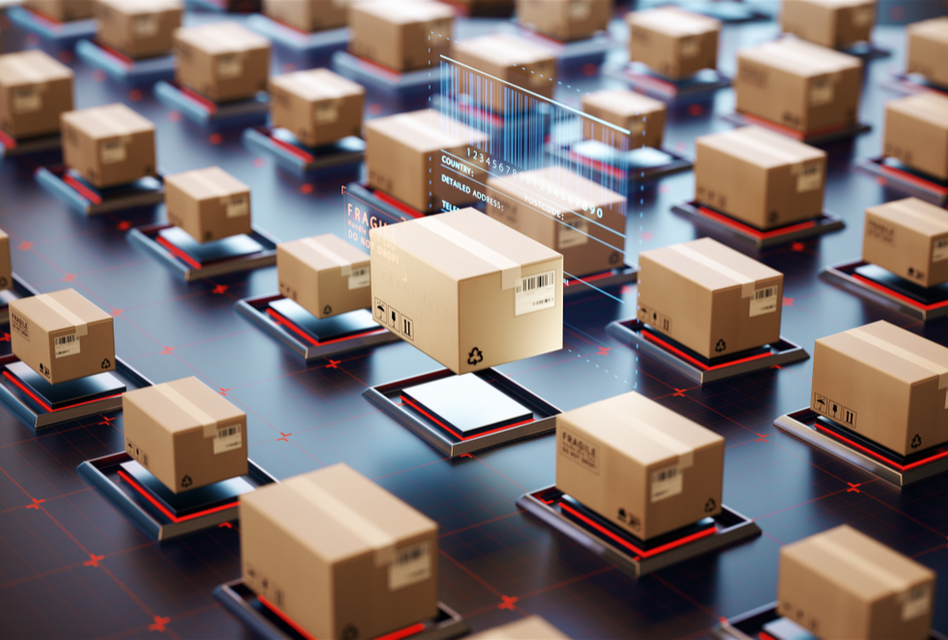The logistics industry is undergoing a significant transformation with the advent of blockchain technology. This blockchain revolution is poised to address many of the longstanding challenges in logistics, such as transparency, efficiency, and security. As companies continue to explore and implement blockchain, the industry is set to experience unprecedented improvements in various aspects of the supply chain. Here’s a look at how blockchain is revolutionizing the logistics sector.
Enhancing Transparency and Traceability
One of the most significant benefits of blockchain technology in logistics is its ability to enhance transparency and traceability across the supply chain.
Immutable Ledger: Blockchain operates on an immutable ledger system, where every transaction is recorded permanently and cannot be altered. This feature ensures that all participants in the supply chain have access to accurate and tamper-proof data.
Real-Time Tracking: With blockchain, companies can track the movement of goods in real time from the point of origin to the final destination. This visibility helps in identifying and addressing any issues promptly, such as delays or deviations from the planned route.
Improving Efficiency
Blockchain technology streamlines various processes in the logistics industry, leading to significant improvements in efficiency.
Smart Contracts: Smart contracts are self-executing contracts with the terms of the agreement directly written into code. These contracts automatically execute and enforce the terms, reducing the need for intermediaries and manual processing. This automation speeds up transactions and reduces administrative costs.
Streamlined Documentation: Traditional logistics operations involve a lot of paperwork, including bills of lading, invoices, and customs declarations. Blockchain digitizes these documents, making them easily accessible and verifiable. This streamlining reduces errors, accelerates processes, and lowers operational costs.
Enhancing Security
Security is a critical concern in the logistics industry, and blockchain technology offers robust solutions to address these challenges.
Data Integrity: Blockchain’s decentralized nature ensures that data is distributed across multiple nodes, making it highly resistant to hacking and unauthorized alterations. Each transaction is encrypted and linked to the previous one, creating a secure chain of information.
Fraud Prevention: The transparency and traceability provided by blockchain make it easier to detect and prevent fraud. Every transaction is recorded and verified by multiple parties, reducing the risk of fraudulent activities.
Challenges and Future Prospects
While blockchain technology offers numerous benefits, its implementation in the logistics industry also faces several challenges.
Integration with Existing Systems: Integrating blockchain with legacy systems can be complex and costly. Companies need to ensure that blockchain solutions are compatible with their existing infrastructure to maximize benefits.
Scalability: As the volume of transactions increases, the scalability of blockchain technology becomes a concern. Ensuring that the blockchain network can handle large volumes of data efficiently is crucial for widespread adoption.
Regulatory Issues: The regulatory environment for blockchain technology is still evolving. Companies must navigate a complex landscape of regulations and standards to ensure compliance and avoid potential legal issues.
Future Trends in Blockchain for Logistics
Looking ahead, several emerging trends are expected to further enhance the application of blockchain in logistics.
Interoperability: Future blockchain systems will likely focus on interoperability, allowing different blockchains to communicate and share data seamlessly. This will enhance the efficiency of global supply chains.
IoT Integration: The integration of blockchain with Internet of Things (IoT) devices will provide real-time data on the condition and location of goods, further improving transparency and traceability.
Decentralized Finance (DeFi): DeFi applications can provide new financial instruments and solutions for the logistics industry, such as decentralized insurance and supply chain financing, increasing liquidity and reducing financial risks.
The blockchain revolution is set to transform the logistics industry by enhancing transparency, improving efficiency, and ensuring security. As companies continue to adopt and implement blockchain solutions, the logistics sector will see significant improvements in supply chain management, fraud prevention, and operational efficiency. Despite the challenges, the future of blockchain in logistics looks promising, with the potential to transform the industry on a global scale.
By embracing blockchain technology, logistics companies can stay ahead of the competition and meet the growing demands of a dynamic market. The ongoing advancements and innovations in blockchain will continue to drive the evolution of the logistics industry, making it more efficient, secure, and transparent.

 English
English Tiếng Việt
Tiếng Việt العربية
العربية हिन्दी
हिन्दी Español
Español